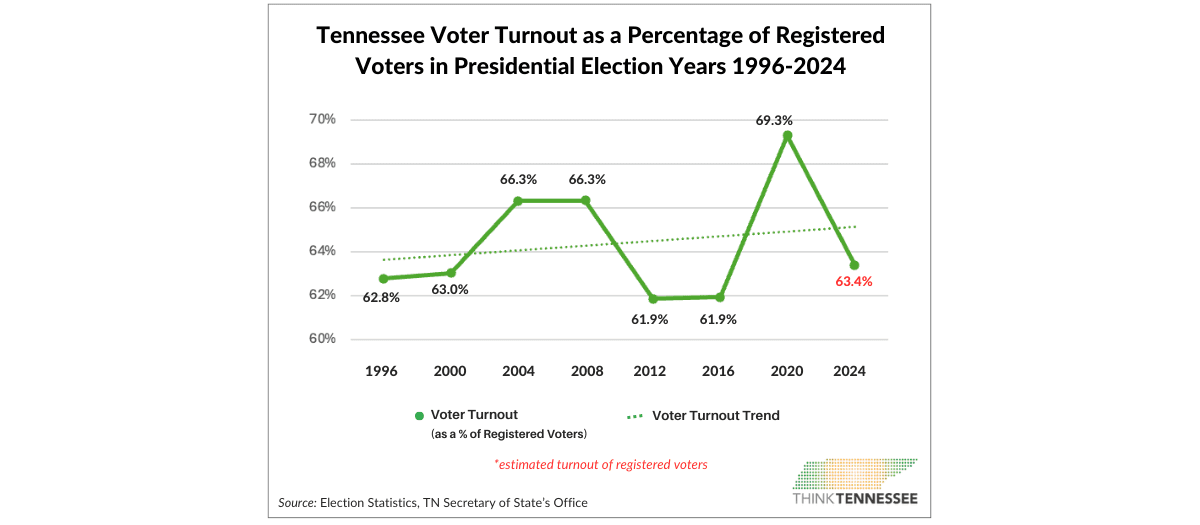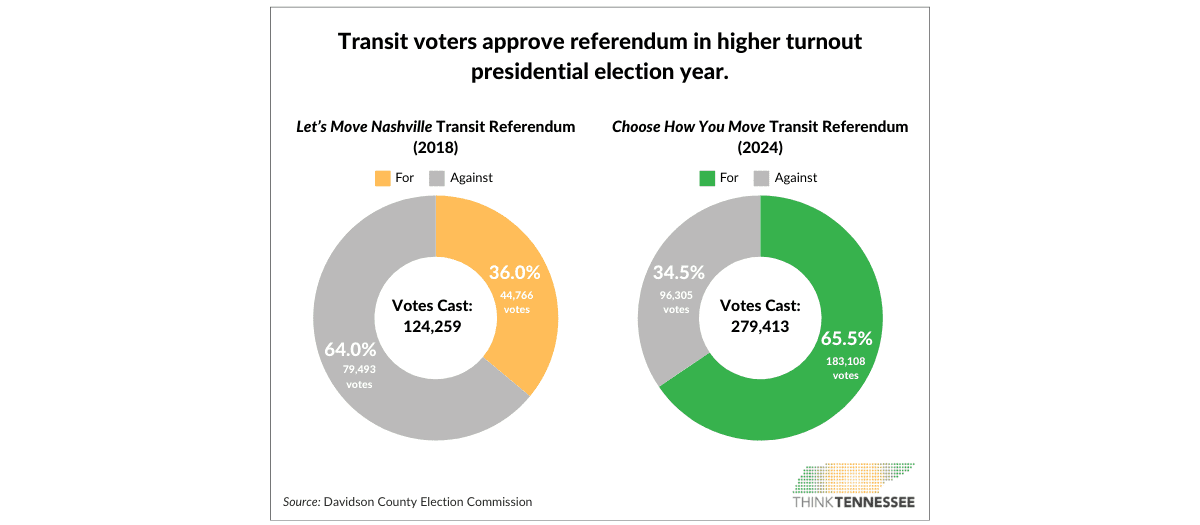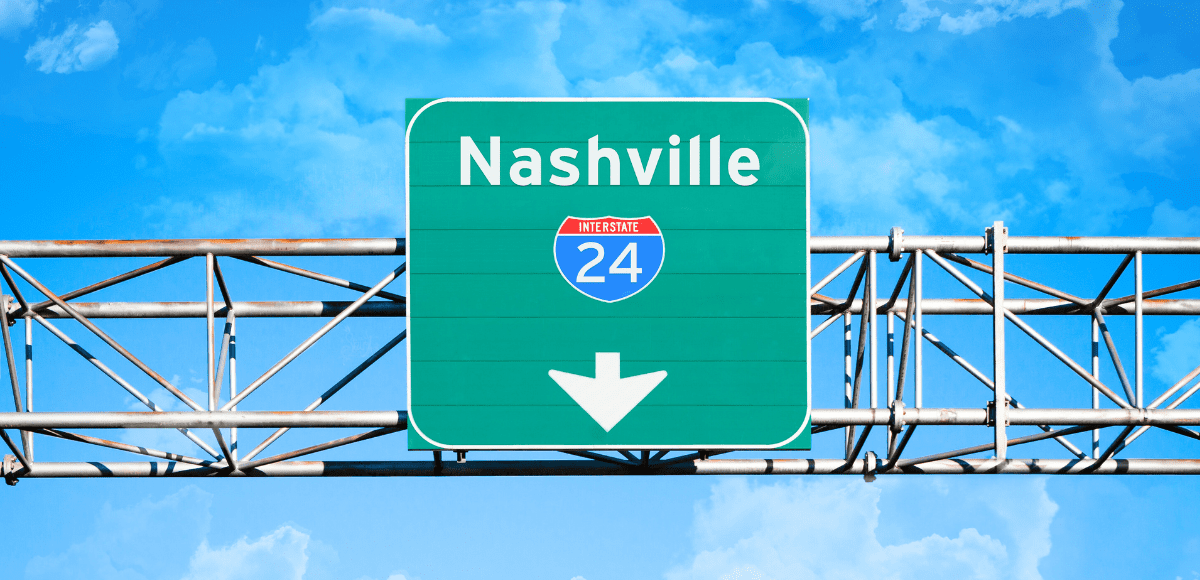Over 3 million Tennesseans cast ballots in Tuesday’s presidential election.[1] We estimate that to be about 63.4% of registered voters (based on Early Voting numbers released by the secretary of state). While that’s shy of 2020’s record, the state’s voter turnout has a positive trend over time.
Election Highlights:
- Voter turnout exceeded 2016 (61.9%) but trailed 2020 (69.3%).
- More state legislative races were contested this year than 2020, giving voters more choices.
- Nashvillians overwhelmingly approved the transit referendum, with 65.5% of voters in favor.
More Tennesseans participated this year than in 2016, but not as many as 2020.
In Tuesday’s general election, an estimated 63.4% of registered Tennesseans turned out to vote. That falls below the record-breaking 69.3% in 2020 but is 1.5 percentage points higher than 2016.
Tennesseans continued to utilize Early Voting this year, with nearly 70% of total votes for president cast early in-person—up from 64% in 2016 and 67% in 2020.[2]
More legislative races featured a choice between candidates, with one race decided by 131 votes.
This November, more Tennessee voters had a choice between state legislative candidates. While one race came within less than 150 votes, most races were won by large margins of victory.
- In 2020, about half (51.3%) of state legislative races had more than one candidate to choose from (including Independents). This year, 70.4% of races featured more than one choice.[3]
- House District 67 in Montgomery County was the closest race, where incumbent Representative Ronnie Glynn (D) won by 131 votes.
Balance of power in the General Assembly stays the same, with 12 newcomers.
When the 114th Tennessee General Assembly convenes next January, it will have the same political composition of 75 Republican and 24 Democratic representatives and 27 Republican and six Democratic senators. But there will be 12 new legislators—nine in the house and three in the senate.
- New members filling open seats: eight (seven in the house + one in the senate)
- New members that defeated incumbents in August’s primary: four (two in the house + two in the senate)
Nashville voters approved the Choose How You Move transit referendum.
Nearly two-thirds of Nashville voters approved Mayor Freddie O’Connell’s transit improvement program, 65.5% to 34.5%. The plan proposes making sidewalk improvements, investing in smart traffic signals, upgrading bus stops, building new transit centers, increasing bus service hours, and building 54 miles of high-capacity transit corridors (including bus rapid transit).
In May 2018, Nashville voters previously voted down the Let’s Move Nashville transit referendum, 64% to 36%. That vote took place during Davidson County primaries, which had lower turnout compared to this year’s November presidential election (124,259 votes in 2018 compared to 279,413 this year).
With voter approval, Nashville joins the vast majority of large U.S. metropolitan areas (now 47 out of 50) with a dedicated funding source for transit infrastructure.[4]
Thank you to election workers for another efficient and secure election.
Once again, elections across our state ran smoothly. Thanks to our county election officials, poll watchers, and everyone else involved! We will release a more detailed report in coming months, but sign up for our newsletter in the meantime for other important updates.
_________________________________________________________________
FOOTNOTES
[1] Official tallies are not yet available, but 3,060,293 votes were cast for president (the top of the ticket).
[2] 2,132,610 votes were cast early in-person in 2024, which is 69.7% of the total votes cast for president.
[3] In the house, 68/99 races had more than one candidate (including Independents) on the ballot. The senate had more than one candidate in 13/16 races.
[4] The measure is partially funded by a 0.5% increase in sales tax. After implementation, Memphis, TN, Orlando, FL, and Hartford, CT will be the only three major cities without a dedicated funding source for transit. Check out our interactive resource on transit funding, available at https://www.thinktennessee.org/localtransitfunding/.







